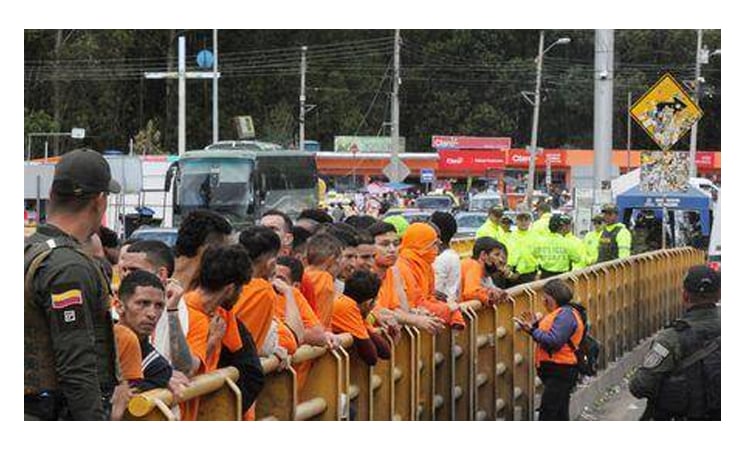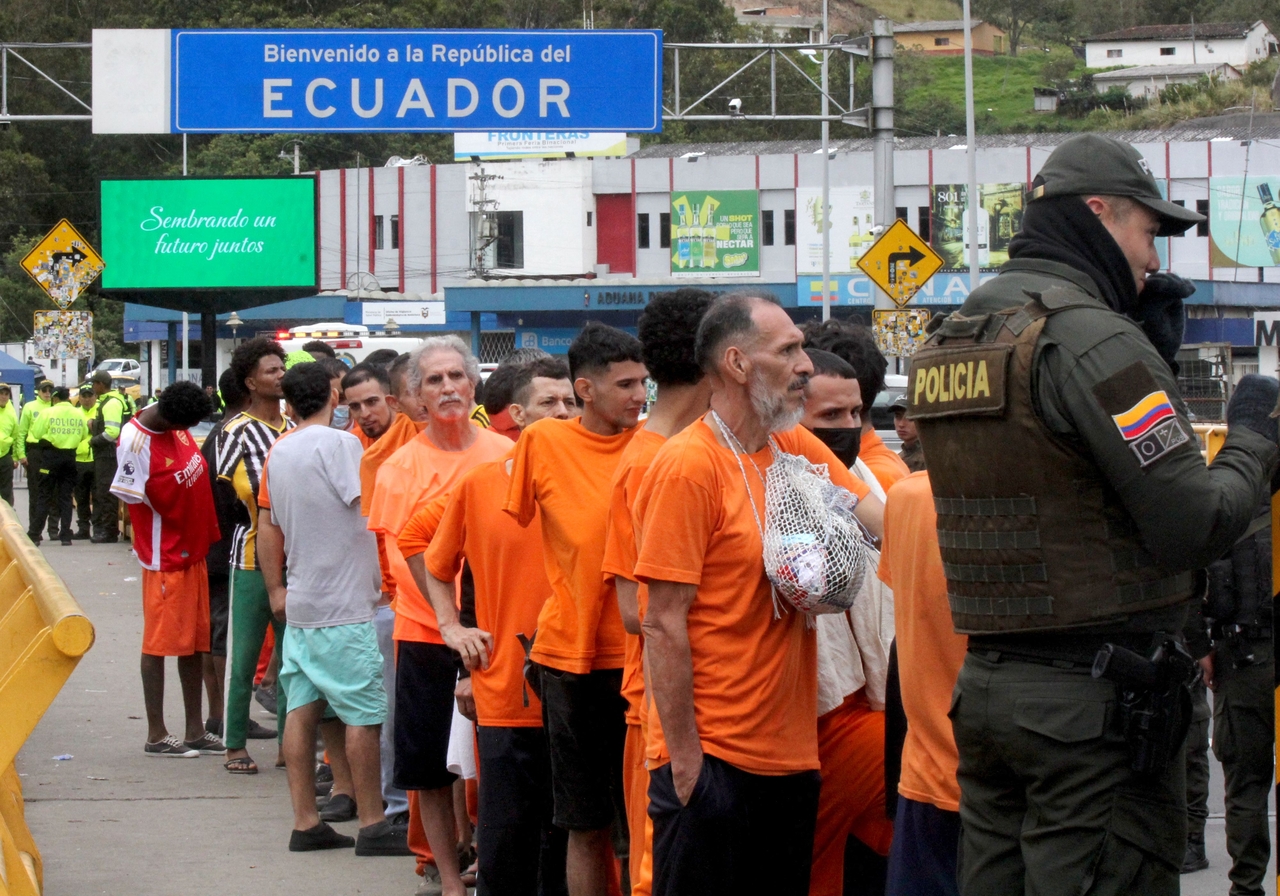Colombian authorities announced Saturday that Ecuador has deported approximately 600 Colombian prisoners via a land border crossing.
This action comes after Bogotá formally protested the move, stating it occurred without prior agreement between the two nations.
Mass Deportation Amid Diplomatic Tensions
Ecuadorian President Daniel Noboa had previously declared his intention in 2024 to deport Colombian inmates to alleviate severe overcrowding in Ecuador’s prisons, with small groups beginning to be transferred in April.
However, Colombian President Gustavo Petro opposed these unilateral deportations, advocating for a joint plan to safeguard prisoners’ rights.
Colombia’s acting foreign minister, Rosa Villavicencio, confirmed the arrival of 603 individuals—60 women and 543 men—at the Rumichaca border crossing in Carchi province.
Authorities from both countries had previously provided conflicting figures regarding the number of deported prisoners.
The inmates, clad in orange uniforms, were seen waiting to re-enter Colombia under the supervision of Ecuadorian police and military personnel. Some, dressed in shorts and t-shirts, performed exercises in the chilly Andean air while chanting, “We want to cross, we want to cross.”
On Friday, Bogotá lodged a formal complaint with Quito, describing the uncoordinated deportation as a violation of international law and an “unfriendly gesture.”

An anonymous source from the Carchi governor’s office told AFP that the mass deportation began Friday, with an initial plan to expel 870 inmates, representing about 60 per cent of all Colombians in Ecuadorian prisons.
Juan Morales, an official in the Colombian town of Ipiales, noted that local authorities were unprepared for the sudden influx of people, as Ecuador had not provided advance notice.
Ecuador’s foreign ministry, however, stated on Saturday that Bogotá was informed of the plan on July 8.
The mayor of Ipiales, Amilcar Pantoja, indicated Friday that prisoners without pending legal cases in Colombia would be released upon arrival.
Ecuador’s Soaring Violence and Prison Crisis
The deportations are a direct response to Ecuador’s escalating violence, largely fuelled by drug trafficking gangs, some of which include Colombian criminals.
Ecuador’s homicide rate has surged dramatically, from six per 100,000 people in 2018 to 38 in 2024, placing it among the most violent countries in Latin America.


 Trending
Trending 